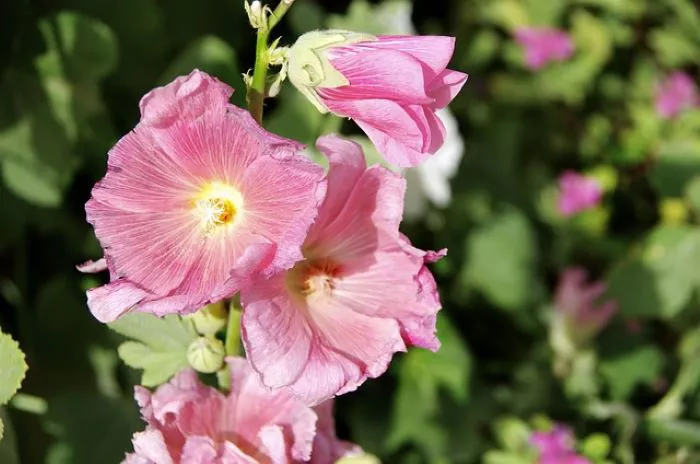Hibiscus flowers are known for their vibrant colors and beautiful appearance. They are often seen in gardens and used in decorative arrangements. However, many people may wonder if these stunning flowers are edible. This article explores the edibility of hibiscus flowers, their culinary uses, nutritional benefits, and safety considerations.
Understanding Hibiscus Flowers
Hibiscus belongs to the Malvaceae family and includes several species, with Hibiscus sabdariffa being the most commonly consumed. This species is often referred to as roselle. The flowers of hibiscus plants are large, trumpet-shaped, and can be red, pink, yellow, or white. While many hibiscus species are grown for ornamental purposes, some are cultivated specifically for their edible parts.
Culinary Uses of Hibiscus Flowers
Hibiscus flowers have been used in various culinary traditions around the world. They can be consumed fresh, dried, or cooked. Here are some popular culinary uses of hibiscus flowers.
Fresh Consumption
Fresh hibiscus flowers can be added to salads for a pop of color and a tangy flavor. They have a slightly tart taste, similar to cranberries or pomegranates. The petals can be used as a garnish for drinks or desserts, enhancing both presentation and flavor.
Dried Hibiscus
Dried hibiscus flowers are commonly used to make herbal teas, known as hibiscus tea. This tea is popular in many cultures and is enjoyed hot or cold. The dried flowers are steeped in hot water, releasing their vibrant color and tart flavor. Hibiscus tea is often sweetened with honey or sugar and can be flavored with spices or citrus.
Hibiscus Syrup and Jam
Hibiscus flowers can also be used to make syrups and jams. The flowers are cooked with sugar and water to create a sweet syrup that can be used in cocktails, desserts, or as a topping for pancakes and waffles. Hibiscus jam can be made by cooking the flowers with sugar and pectin, resulting in a unique spread for toast or pastries.
Nutritional Benefits of Hibiscus Flowers
Hibiscus flowers are not only delicious but also offer several nutritional benefits. They are low in calories and rich in antioxidants, vitamins, and minerals. Here are some of the key nutritional components of hibiscus flowers.
Antioxidants
Hibiscus flowers are high in antioxidants, particularly anthocyanins, which give the flowers their vibrant color. Antioxidants help combat oxidative stress in the body, reducing the risk of chronic diseases.
Vitamins and Minerals
Hibiscus flowers contain vitamins A and C, both of which are essential for maintaining healthy skin and immune function. They also provide minerals such as calcium, iron, and magnesium, contributing to overall health.
Potential Health Benefits
Hibiscus tea and extracts have been studied for their potential health benefits. Some research suggests that hibiscus may help lower blood pressure, support heart health, and aid in digestion. However, more studies are needed to confirm these benefits.
Safety Considerations
While hibiscus flowers are generally safe to eat, there are some important considerations to keep in mind.
Allergic Reactions
Some individuals may be allergic to hibiscus flowers. If you are trying hibiscus for the first time, start with a small amount to see how your body reacts. If you experience any allergic symptoms, such as itching or swelling, discontinue use and consult a healthcare professional.
Medication Interactions
Hibiscus may interact with certain medications, particularly those for high blood pressure and diabetes. If you are taking medication, consult your healthcare provider before consuming hibiscus products regularly.
Pesticides and Chemicals
If you plan to consume hibiscus flowers, ensure they are grown without harmful pesticides or chemicals. It is best to use organic hibiscus flowers or those sourced from a trusted grower. If you are harvesting hibiscus from your garden, avoid using chemical treatments.
Conclusion
Hibiscus flowers are not only beautiful but also edible and versatile in the kitchen. They can be enjoyed fresh, dried, or cooked, offering a range of culinary possibilities. With their rich nutritional profile and potential health benefits, hibiscus flowers can be a delightful addition to your diet. However, it is essential to consider safety precautions, especially regarding allergies and medication interactions. By understanding the uses and benefits of hibiscus flowers, you can enjoy their unique flavors and vibrant colors in a variety of dishes and beverages.


